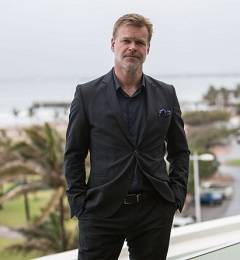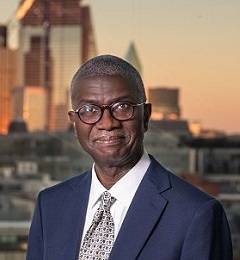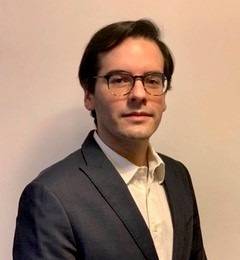
CoST - the Infrastructure Transparency Initiative works with government, the private sector and civil society to promote better governance of infrastructure projects around the world.
This event is free.
Event Information
Open to
- All
Availability
- Yes
Cost
- Free
Organiser
-
Julia Kreienkamp
Infrastructure is a vital component of efforts to meet the UN Sustainable Development Goals (SDGs) and has particular importance in mitigating the impacts of climate change. Yet the Global Infrastructure Hub estimates that of the US$ 94 trillion needed to meet global infrastructure needs by 2040, there will be a $US 15 trillion investment gap.
The severity of this is compounded by the loss in current investment due to governance issues. The IMF estimates that inefficiencies result in a 30% loss, whilst in low-income countries this loss can reach 50%. Furthermore, during Covid-19 many governments have rapidly increased expenditure on healthcare infrastructure using emergency procurement measures to do so, risking corruption and inefficiency in the process.
CoST - the Infrastructure Transparency Initiative works globally with government, the private sector and civil society to heighten transparency, participation, and accountability in public and privately financed infrastructure. Through this approach, CoST has enabled better quality construction, greater trust in decision-makers and significant cost savings across its 19 member countries. Its impact stories range from saving US$ 460 million in Thailand to closing a corrupt institution in Honduras to rectifying serious project issues in Uganda.
This event will expand on how CoST and similar initiatives can meet infrastructure governance gaps and global investment needs, paying particular attention to how a multistakeholder approach influences change in complex political environments.
About the Speakers
Professor Richard Calland
Professor Calland is Associate Professor at University of Cape Town (UCT) and Fellow at the Cambridge Institute for Sustainability Leadership. For over 25 years he has worked in fields of democratic governance and sustainable development in South Africa and beyond. He has played an advisory role to CoST on governance and multi-stakeholder working and he has advised governments including South Africa, Mali, Peru, Nicaragua, Bolivia and Jamaica on transparency law reform and policy. He founded the Democratic Governance and Rights Unit at UCT and serves as a member of the World Bank’s Independent Access to Information Appeals Board. He is co-director of the African Climate Finance Hub, supporting governments and multilateral organisations in Africa on issues relating to access and use of climate finance. Prior to moving to South Africa in 1994, Professor Calland practised law in the UK, assumed leadership roles at Idasa, a leading democracy Institute in Africa and founded and led organisations such as the Open Democracy Advice Centre. He holds an LLM from the UCT, a Diploma in World Politics from the London School of Economics and a BA in Law from the University of Durham. He is a regular media commentator and has authored several books.
Evelyn Hernandez
Evelyn Hernandez is Head of Members and Affiliates at CoST. In this a role she provides technical assistance to current members of the initiative to help them design and implement effective programmes. Prior to this, Evelyn was the manager of CoST Honduras, helping the programme see many achievements such as receiving an Open Government Award in 2016. Evelyn plays a key role in the development of CoST technology, driving forward the implementation of data standards across member countries, the delivery of CoST’s flagship ‘Infrastructure Transparency Index’ and the adoption of online platforms which publish data from both public and private infrastructure projects. Before joining CoST, Evelyn worked on transparency, accountability and citizen engagement programmes in Latin America and provided technical assistance, research and policy analysis for several international development organisations.
George Ofori
Professor Ofori is Dean of the School of The Built Environment and Architecture, London Southbank University (LSBU) and a member of the CoST Board. He specialises in construction management and economics, at project, company and industry levels, and particularly focusses on improving the capacity and capability of the construction industry, especially in low-income countries. Professor Ofori has a BSc in Building Technology in Quantity Surveying from the University of Science and Technology, Kumasi, Ghana, a PhD and a MSc in Building Economics and Management from University College London, and he was awarded a DSc by the University of London. He is a Fellow of the Ghana Academy of Arts and Sciences. From 1983 to 2017, Professor Ofori was employed by the National University of Singapore, where he was promoted to Full Professor in 1999, and was the Head of the Department of Building for five years. He has been a consultant to many governments and international agencies on construction industry development.
Dr Armando Castro - Chair
Dr Castro is a lecturer at the Bartlett School of Sustainable Construction, UCL. His research is interdisciplinary, spanning management, economics and sociology and with a particular focus on business ethics and strategy, sustainability, corporate corruption, new venture finance and O&G Megaprojects. He has presented his work at several global conferences and his work on corruption has been well published. He holds a PhD in Management from Imperial College London, a Masters in Public Administration (MPA) from the London School of Economics (LSE) and a bachelor’s degree in economics (cum laude) from the University of Trento. He is also a research affiliate at the Cambridge Centre of Alternative Finance, Judge Business School, University of Cambridge. Prior to his academic career, he gained business experience as a consultant specialised in investments in Brazil, particularly in infrastructure and public-private partnerships. He also has experience in the Brazilian financial market and has provided advisory services to Brazilian and Italian governments.
Other events in this series






 Close
Close

